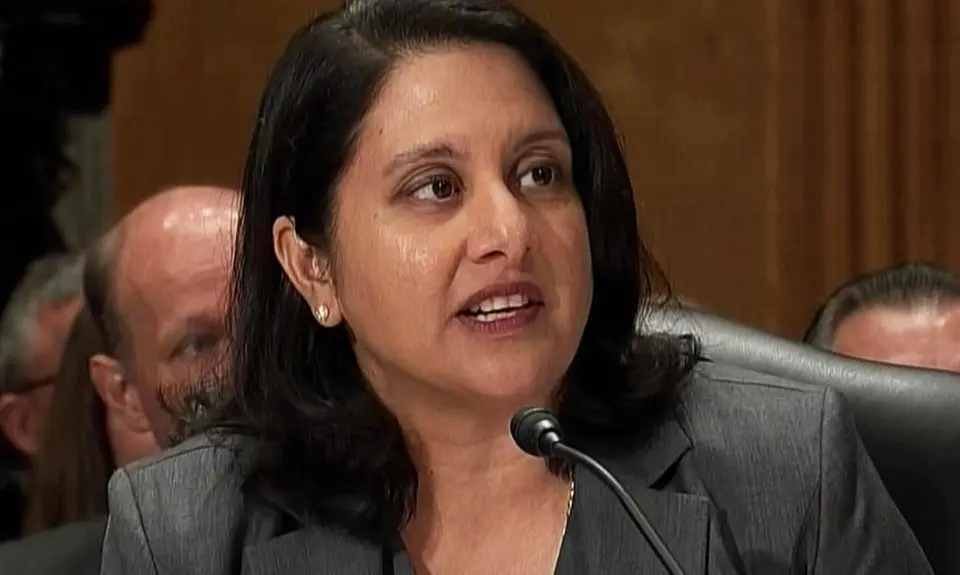“Confirmed Judges, Confirmed Fears” is a blog series documenting the harmful impact of President Trump’s judges on Americans’ rights and liberties. Cases in the series can be found by issue and by judge at this link.
Trump judge Neomi Rao wrote a panel opinion short-circuiting the normal legal process and ordering D.C. District Court Judge Emmet G. Sullivan to dismiss the criminal case against Michael Flynn, President Trump’s former national security adviser. In so doing, she enabled the corruption that has infected the Justice Department under Attorney General William Barr. The June 2020 case is In re Flynn.
Flynn had already pleaded guilty to lying to FBI agents who were investigating Russian interference in the 2016 presidential election. But as part of the Republican Party’s disinformation campaign to discredit the entire Russian investigation—and thereby absolve Trump from the misconduct recorded in the Mueller Report—his followers sought to vindicate Flynn and reframe the scandal and try to make Trump appear to be the victim of an unlawful investigation. Barr’s Justice Department collaborated in this effort and asked Judge Sullivan to dismiss the charges against Flynn, even though he had already admitted committing the crimes.
In the face of such blatant corruption and with no one to present the opposing legal argument, Sullivan asked an outside attorney to submit a brief on whether he should grant the Trump administration’s request, and to address whether Flynn should be held in criminal contempt for perjury. But rather than await Sullivan’s decision and appeal any adverse ruling to the D.C. Circuit, Flynn asked the D.C. Circuit to step in prematurely and order Sullivan to dismiss the charges by issuing an order called a writ of mandamus.
Trump judge Neomi Rao—who was previously Trump’s appointee to run the Office of Management and Budget’s Office of Information and Regulatory Affairs (OIRA)—cast the deciding vote to help her former boss. She wrote the 2-1 panel opinion giving the Trump administration what they wanted over the strong dissent of Judge Robert Wilkins.
As Wilkins explained, mandamus is an “extraordinary” remedy that is generally granted when no other remedy is available. That was not the case here. Wilkins noted that the D.C. Circuit has never before issued a writ of mandamus “to compel a district court to rule in a particular manner on a motion without first giving the lower court a reasonable opportunity to issue its own ruling.” He also noted that courts grant mandamus only when the petitioner’s case is “clear and indisputable.”
As the dissent sets forth, the D.C. Circuit has never before held that a trial court must reflexively grant a dismissal request without giving it any actual consideration. This is not surprising, since the federal procedural rule cited by DOJ says the charges can be dropped “at the leave of the court.” Other courts considering the issue have cited the trial judge’s responsibility to consider the public interest in such circumstances. It is anything but “clear and indisputable” that Judge Sullivan was required to dismiss the case without even considering the matter.
Finally, as Wilkins pointed out, mandamus cannot be granted if the petitioner—in this case, Flynn—has other potential remedies available. But Rao chose to look for an injury to the federal government instead, even though it had not petitioned for mandamus, and she found what she considered an injury that could not be remedied through the normal appeals process: that the Trump administration might have to disclose how it reached its decision to drop charges. Rao decided this would cause irreparable harm to the executive branch’s exclusive power of prosecution. As Wilkins’s dissent noted:
[This is] the first time we have issued the writ even though the petitioner has an adequate alternative remedy, on the theory that another party would not have had an adequate alternate remedy if it had filed a petition as well.
It is possible that Judge Sullivan or a D.C. Circuit judge will ask for en banc review by the full circuit. The judicial branch should serve as a check on a corrupt president using his powers to undermine the rule of law. But that systemic protection fails if judges put partisanship and loyalty to Donald Trump over the Constitution.
